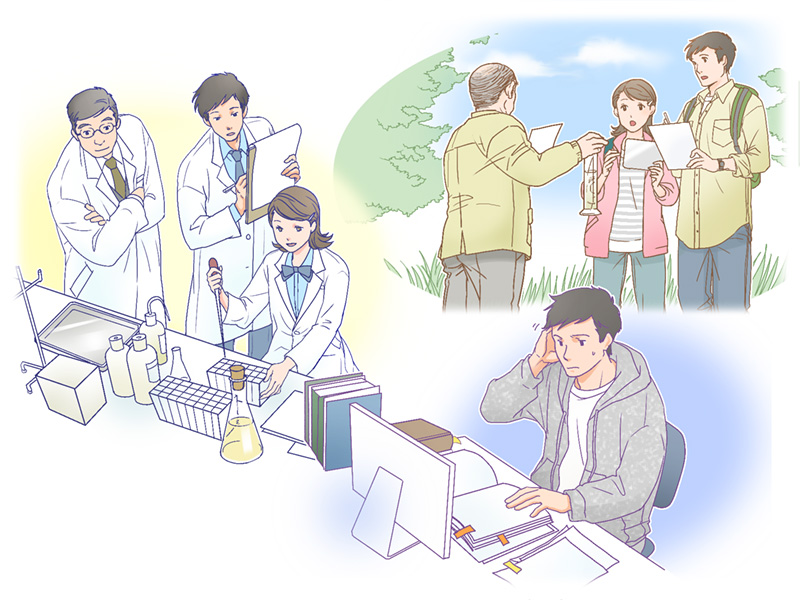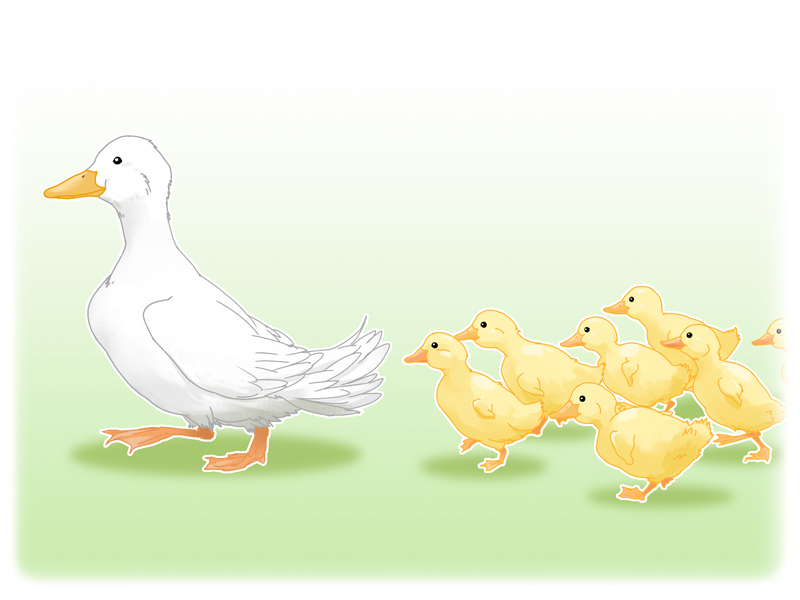There is much to wonder about in the phenomena happening around us. Science is originally an activity by which one pursues an intellectual curiosity, and its subjects include everything within what is called the “natural sciences” to what is called the “humanities.” Research is the activity of searching for an object of study and exploring it. It is one thing to learn through books, but the sense of accomplishment you get when you research and discover something new is hard to reproduce.

Human beings have established lives and societies by observing the natural phenomena and mechanisms of living things around them and applying the results into technology. Research activities go beyond the pursuit of an object of curiosity and change the way we human beings exist. Smartphones and TVs, for example, didn’t exist 100 years ago, but can you imagine life without them? Psychological and sociological study into human behaviorial patterns and group psychology can not only answer questions about what we as human beings are but also help lead us to think about what kind of society we want. In this way, while research activities make our lives more convenient, they enhance our understanding of the world and ourselves. But they can also have a negative impact on us, other living organisms, and our environment too depending on how we use them, and caution is also required in conducting research.

Many people are involved in research work from an assortment of viewpoints. In conducting their studies and clarifying them, different people have differing interests, along with different subjects and content. The results of science and technology (or “tech”) today benefit from the knowledge and its history accumulated by many. As a result of collective activities, research and publications made in a selfish manner, no matter how interesting the content, could hinder others’ study activities. To prevent this, this module explains how to conduct and handle research subjects properly, and how to present the results to the rest of society. Publishing robust results and observing others’ efforts make us want to know more. In addition, the research activities themselves become more enjoyable and grow in value. Understanding how to conduct study activities appropriately supports those activities. And, above all, it helps protect the researchers themselves.
Even if you do not actually conduct a study, it is important to understand what study activities involve. Many individuals are affected if some research is misused or advances in the wrong direction. In this sense, in contemporary society, we are all involved in research activities.
Based on the above, in this module, we will provide the basics for responsible research conduct.
Learning objectives
- Understanding and being able to explain what responsible conduct of research and what research misconduct are.
- Knowing and being able to outline what to be aware of when conducting or publishing research using examples from actual research misconduct.
- Comprehending and being able to describe what to be aware of when proposing, conducting, and publishing research.
Grasp each of these things well before starting, participating in, and publishing research, and enjoy your work.
